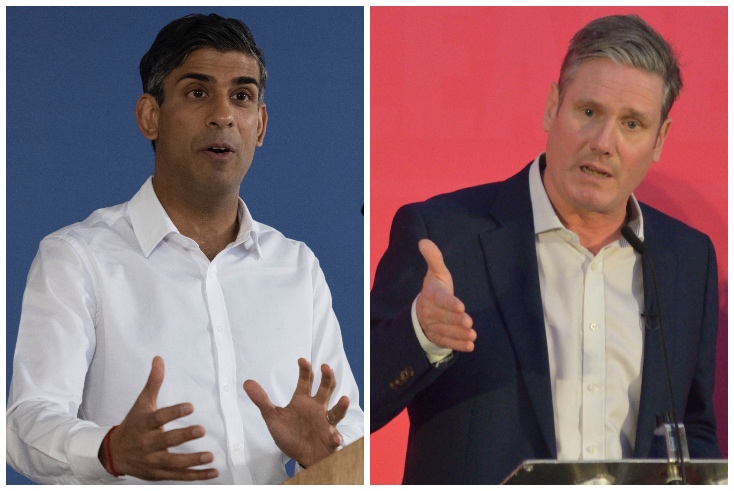Is this the advent of political party ads on BVOD platforms?

Are political party ads coming to broadcaster streaming platforms?
While paid political party ads have been banned on broadcast TV since the advent of commercial TV, the rule has not been updated since 2003 and therefore does not apply to VOD services such as streaming TV or social media, a spokesperson for Ofcom confirmed to The Media Leader.
A spokesperson for the Advertising Standards Authority (ASA) told The Media Leader that ads on streaming services are covered by the CAP Code (UK Code of Non-broadcast Advertising and Direct & Promotional Marketing). And, unlike on linear broadcast, there is not a limitation on political ads appearing on these platforms or via influencers.
“We don’t regulate ads that are designed to influence voters in a local, regional, national or international election or referendum,” the ASA said. “It would be up to the individual broadcasters and streamers to establish their own policies on these kinds of ads. Ultimately, we expect advertisers to be responsible. We encourage political parties and candidates to advertise truthfully and treat the public fairly.”
Analysis: Different approaches
According to a report by The Guardian, ITV is considering whether to allow political parties to buy ads on its streaming platform, ITVX.
Talking to The Media Leader, an ITV spokesperson did not formally commit to accepting such ads, but would not rule it out as a possibility.
“We make sure advertising on ITVX is compliant with all rules,” ITV said. “Political advertising is prohibited on live television (including live simulcast channels within ITVX), but there are no such rules for streaming services such as ITVX more broadly or for video-sharing platforms such as YouTube or social media networks such as Facebook.
“It is for political parties to consider where they wish to run their campaigns. As a commercial PSB [public-service broadcaster], we’re considering our position on this issue very carefully.”
Meanwhile, a spokesperson for Sky said it “would not be accepting political adverts on its Now TV streaming service”.
Similarly, a spokesperson for Channel 4 explained: “We apply The Broadcast Committee of Advertising Practice Code to our streaming platform and, as such, do not accept party political advertising in our advertising airtime.
“The only form of political broadcasts we would accept is through party political broadcasts allocated in programming airtime.”
Other streaming services, such as Amazon Prime Video, Disney+ and Netflix, do not accept political advertising.
How desirable is political advertising?
ITV’s consideration follows a challenging year in the TV ad market, with the broadcaster’s linear ad revenue falling 15% and adjusted Ebitda (the company’s measure of profit) dropping 32% to £489m.
ITVX has seen continued growth, however. Monthly active users increased by 19% in 2023 to 12.5m and total streaming hours grew 26% to 1.5bn.
“The progress we have made in streaming and against our KPIs means that we are confident of delivering at least £750m of digital revenues by 2026, with the focus continuing to be ad-funded,” ITV CEO Dame Carolyn McCall said in the company’s most recent earnings report last month.
Taking on political party advertising in this election year could help drive additional revenue growth for ITVX at a time when the company is looking to compensate for losses on the linear side.
It could also attract a pool of adspend that is otherwise funnelled to other channels that already compete for attention with TV, such as social media.
‘Good for democracy’
Rae Burdon, a director at Reform Political Advertising, sees “no issue” with the principle of political advertising on streaming services — “or, indeed, anywhere else, for that matter (we’ve never really understood the prohibition on broadcast services)”.
He told The Media Leader: “Putting aside the regulatory complexities, the issue then becomes the desirability of political advertising on the service.
“That’s a judgement for ITV, of course, but again in principle we would be in favour. From our point of view, it’s good for democracy and good for media equitability that political cases can be put as widely as possible.”
However, Burdon warned that political advertising should be subject to rules on factual claims under section three of the ASA’s CAP Code.
Amid the 2019 general election, the Electoral Commission said it received “a large number of complaints raising concerns about the presentation, tone and content of election campaigns” and emphasised the importance of transparency in who produces political information.
“Unregulated political advertising causes us — and the great majority of voters — considerable concern,” Burdon added, “but that applies to all forms of media. ITVX is no different in that respect, except that its ‘clout’ in the UK media context will hopefully bring greater awareness to how political parties advertise and hopefully cause ITV management to consider that aspect with some care. Their viewers would certainly appreciate it.”



